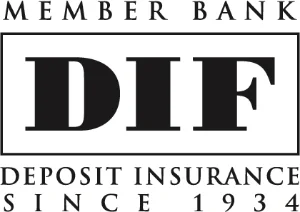
For a while now, people have been encouraged to be practically obsessed with their credit score. Getting a high score. Keeping it high. Monitoring it on a regular basis. Even signing up for add-on credit score boosting services that want access to more and more of your personal information for the possibility of maybe manipulating your credit score so it goes up by a few points.
Here’s the truth about your credit score. A good credit score tells a lender three things: 1) You can pay your bills on time, 2) You do pay your bills on time. And 3) You’re not overloaded with debt. That’s it.
In the 3-week period over the summer of 2022, the credit reporting bureau Equifax sent out “inaccurate credit scores for millions of would-be borrowers,” according to The Wall Street Journal. The difference could have been plus or minus 20 points on an individual’s Equifax credit report.
The Journal article talked about “concerned would-be borrowers scrambling to determine whether the mistake affected them.” They urged borrowers to not take their credit score at face value. “Set up alerts,” the Journal said. “Scrutinize your credit score with a magnifying glass. Contact your lender. Get your claim investigated.” And more along those lines.
The reality is that for an individual with a typical credit score – say about 670 and above – 20 points either way is just not going to have much of an impact on a mortgage loan, for example. Mortgage lenders tend to look at a blended score from all 3 credit reporting agencies and then run that through their own proprietary lending software – so they are seeing a score which is somewhat different from scores a consumer would see anyway.
Your credit score can matter more for “model driven” lending that doesn’t have the significant collateral of a house – car loans and credit cards, for example. Your goal there should be to be aware of your credit score so you can be sure the interest rate you’re being offered is in line with it.
Monitoring your credit score is something you can easily do yourself at no charge in a minimal amount of time. FICO gives free estimated credit scores at myFICO.com. Checking that annually is usually sufficient for most people’s needs. Significant unexpected changes should obviously be addressed immediately. But that occurs out-of-the-blue much less often than the subscription-fee credit report monitoring services would have you believe.
If you’re worried that your credit score is a problem, the best thing you can do is sit down and talk with a local lender about it. A good local lender has seen it all. They can give you ideas for what you might be able to do to raise your credit score on your own in a reasonable amount of time – without having to pay for a 3rd party service or giving up access to personal financial information.
Some say the goal should be to get to the point where your credit score doesn’t matter because you don’t intend to borrow anyway. If you get there, great! But people’s credit scores do get checked for various non-borrowing reasons. Having the best credit score you can is a reasonable goal but not one you need to be obsessed about or devoting a lot of time to. Paying your bills on time and not carrying too much debt will do most of the heavy lifting for you.
From the “Smart About Money” Canton Citizen column published May 18 2023.
Nick Maffeo is the President & CEO of Canton Co-operative Bank – right next to the Post Office – in Canton.
Have a question? Email to info@cantoncoopbank.com.


